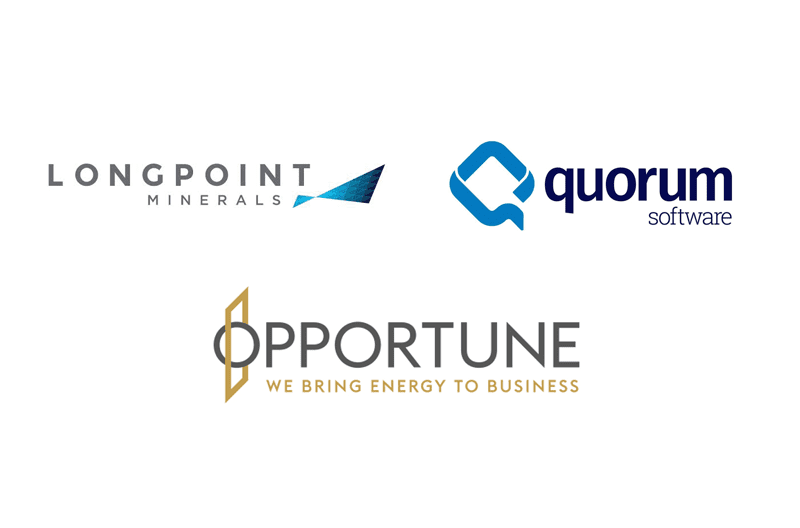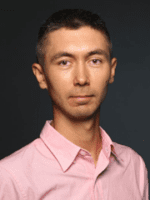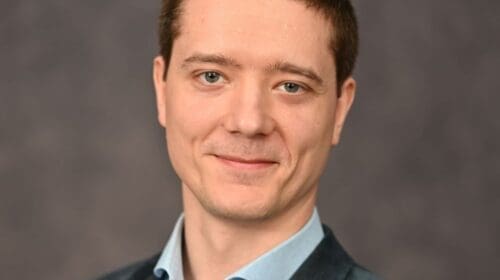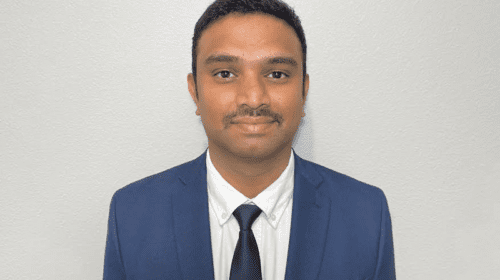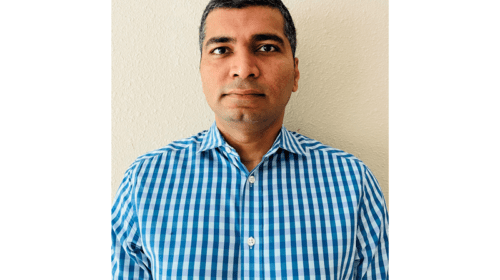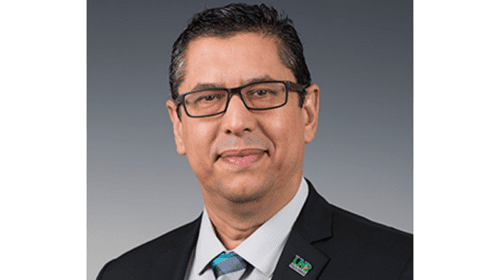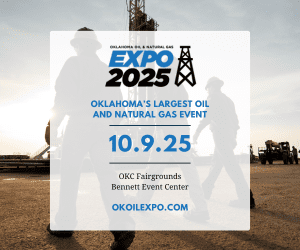There were a lot of companies at NAPE Summit, and as my 1st visit to the conference, I could say that it’s indeed where the deals happen! We happened to interview three prominent companies.
 The first company was LongPoint Minerals, a Denver based company focused on the acquisition of mineral rights. Will Cullen, the VP of the company in Business Development, spoke with us.
The first company was LongPoint Minerals, a Denver based company focused on the acquisition of mineral rights. Will Cullen, the VP of the company in Business Development, spoke with us.
Tell us, how long you’ve been in the industry and what’s your background?
I’ve personally been in the industry since 2002, I did mineral royalties from 2006 to 08, then worked at Shell for nine years, and then came back to minerals again. I went to school for fine arts, did graphic design, then business school with finance degree, had some work with an E&P company, and then stayed in oil ever since.
When you come to conferences like that, what are you trying to achieve?
This year is very different for us, this our first NAPE having the booth. We’ve been coming here for years, but this is a new experience for us, trying to expand our networks and gain a brand awareness, and for those who have a mineral deal, we could look at that. We look at mineral portfolio mainly. NAPE really is just a start of the conversation, then it continues afterwards with exchange of data and other information.
Were you affected by downturn?
I think everyone was affected by downturn; but because we are so focused on mineral royalties acquisitions, it takes a while for that to filter down to mineral owners, because their checks are delayed up to six months, they don’t see the downturn right away, and they’re also are quite far away from the industry. We’ve seen some prices to adjust especially in Oklahoma. It’ll hit them eventually, they’ll see it in terms of a fewer production revenue sharing, but it’s just delayed.
Do you think the new low oil price environment is the new reality moving forward?
Our industry had so many cycles, 80s-90s, I think the industry will come back but will we see $100 oil again? – probably not. The industry has advanced so much, we’re better at finding oil.
Who are most of the people that work at your company?
We have a sister company, Four Point Energy, and that’s a traditional E&P company, so there you’ll find engineers, geologists, geophysicists – and just about anyone needed to run an exploration company.
Where and how you find the new people?
A lot happens online, we have a rigorous process of hiring, trying to retain people so they don’t leave. We go through several interview processes. You have to sit down and the entire management asks you questions, we make sure the people are comfortable. We have an internship program, and we work with students.
What skills do students need to have?
We are looking for team players, who can do whatever to make sure the team can succeed. Not limited to your duties only, where he can jump to get it done. Communications and being able to relate to – are important qualities. We mostly use personal verbal communication, to make sure everyone knows what the other is doing, and our office is pretty open.
Onsite Interview
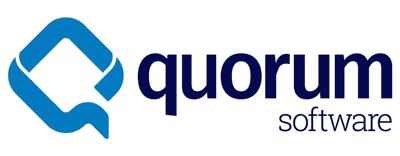 Our next speaker was Olivier “OT” Thierry, Chief Marketing Officer at Quorum Software. Quorum had quite an impressive booth. So there it goes.
Our next speaker was Olivier “OT” Thierry, Chief Marketing Officer at Quorum Software. Quorum had quite an impressive booth. So there it goes.
OT, tell us something about you and your company?
I’m a chief marketing officer. Our company specializes in accounting, financial, transactional and operational sides of software. Anything of energy value chain – everything from exploration to gas processing – from upstream to downstream – from wellhead to the city gate. We have 10 major software products. Over 950 oil customers – from supermajors to small startups. 350 midstream and transportation customers. 700 employees. Majority of business is in North America, with offices in Dallas, Denver, Calgary and Houston.
I moved from Canada to the USA in 1989 and have been with startups even before that, I was glad to build a career here. Living in Quebec wouldn’t give me the same opportunities like here. I did Computer Science and Business in school. Back then, I wouldn’t know where I would end up had you asked me. CS and Data science are very important. If you think about reserves and declines, the number of datasets and sizes, data science, artificial intelligence, data analytics, all these tools will be the future, you can’t do the job without software supporting you.
What advice would you give to young students?
We hire about 80 college grads per year. We put them into consulting organization to understand what oil and gas is, to go from theoretical education to practical application. While working they will see many different oil companies. As opposed to seeing just one company, they can see many companies, and they may even in the future decide that they want to work in that one particular oil company, or they can stay on the software side.
I recommend trying to get as much as practical application as possible. I’d also get a masters in data science in addition to petroleum engineering. You could start in a software company and you get assigned to an E&P, so some of our employees end up working at those client E&P companies because they liked them.
Majors include chemical, mechanical, petroleum engineering, computer science – at that stage it is not as much as a degree but the person, the ability, the DNA, their capabilities. A lot of students want to work at Quorum. We recruit from certain schools and get to pick the best.
How do you spot greatness in students?
I think it has to do with their intellectual curiosity. If they are curious about the next interesting question, which shows that they’re listening, paying attention, and searching for more knowledge. I like candidates who are looking to learn. It keeps you grounded and humble – you realize you don’t know everything. There should be a spark, chemistry, it’s immediate. I prefer to hire on DNA in most cases rather than a pure resume. If we bring the right person, they can learn anything. We also are starting to place our software to universities like Texas Tech, we want to expose them to the real world. In North America, there are 11-12 accredited AAPL programs, and we’re looking to work with all of them eventually in the future.
Were you affected by downturn?
Because we have products in mid and downstream, we were not affected so much. We do a lot of pipeline, local distribution, software for LNG terminals, etc. So it all balances out, when one sector is down the other is usually not.
How do you want to advance in the future?
We want more international presence. We will do some acquisitions, and then will expand internationally.
Onsite Interview
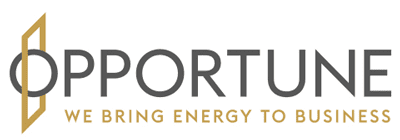 The last company was Opportune, an energy focused consulting and accounting firm. Raza Rizvi – VP of Accounting, spoke with us.
The last company was Opportune, an energy focused consulting and accounting firm. Raza Rizvi – VP of Accounting, spoke with us.
Tell us about your company?
We’re energy focused consulting and back office accounting company – we don’t do audit, we do outsourcing for the clients. We help you from getting you ready for the transaction, do due diligence, set up software, the back office support. We’re based in Houston downtown, and we have offices in Oklahoma, Denver, New York.
Do you have any engineering services?
We do, we have the reserve engineering firm, Ralph E. Davis, we do reserve studies for due diligence and other operations.
Were you affected by slowdown?
We’re like a one stop shop. When there’s a slowdown, a lot of people start reducing costs, but they still want accounting to be done, and our firm can offer the lower rate than the competitors. For the companies, instead of having their own employees, software, offices dedicated to accounting – they are better off using a company like ours where we do all the back office accounting. Last year, most companies went through restructuring and bankruptcies so we helped companies with that.
As a company, how do you navigate the cycle of ups and downs?
There’s a potential, we tell our clients, we can help them with acquisitions. This year will be slow, we’ll see a lot of mergers.
What if oil goes up?
Then we’ll see a lot of companies emerging back, a lot more drilling will come back. What we see now is what we saw in 80s. But this market has always come back.
What do you try to get out of NAPE?
We’ll see a lot of 1st time buyers, to let them know that a company like ours exists and that we can offer a one-stop shop for their needs.
A lot of companies struggle with acquiring funds, do you help with that?
We have a restructuring group, and an evaluation group that clients can call upon.
What type of people do you hire?
We have about 300 full-time employees. Professionals from all over oil and gas. My background is 20 years as a public accountant. We have younger people straight out of college, they’re consultants and work on projects, work on evaluation and accounting. We hire also petroleum engineers.
What do you do with younger generation of people?
We saw that five years ago we had a lot of experienced people, but we changed our model with hiring, now we do more of newer people who are out of school. We have a 2-year rotation program and rotate them through all the processes. Our focus has been going to the school and get people there.
What characteristics do students need to have to succeed?
They all come with degrees, right work ethics, hunger to learn – we can train you with anything but without desire to learn there’ll be nothing – you need to be open to new opportunities. We provide the right amount of training and hold hands until we see he’s ready. Our consultant travels all around, usually works in the corporate offices of the client.
Any last message to the NAPE attendees?
My message would be to people is that we’re the only energy focused firm, we’re the one-stop shop. We have hedge evaluation shop, anything energy related we will have an answer for that.
Onsite Interview
Alan is a graduate from the University of North Dakota with a Master's degree in Petroleum Engineering. He previously earned his BA in Mathematics from the University of Houston and a BS in Petroleum Engineering from the University of Wyoming. Alan is an active SPE member and has presented at petroleum conferences and exhibitions.

